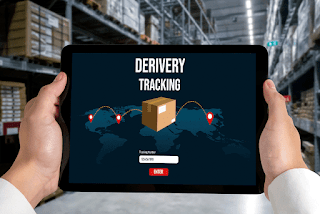Data security in logistics: Safeguarding against cyber threats
In today’s interconnected digital world, the logistics industry stands at a critical
juncture where the safeguarding of data is paramount. As the backbone of global
trade, logistics companies handle a vast array of sensitive information, ranging from
shipment details to customer data. However, with this reliance on technology comes
the ever-looming specter of cyber threats. To ensure the seamless flow of goods and
information, it’s imperative for logistics firms to fortify their defenses and adopt robust
strategies for data security.
One of the primary challenges facing the logistics sector is the sheer volume and
diversity of data being generated and exchanged. From tracking shipments in real-
time to managing inventory levels, every aspect of the supply chain generates
valuable data points. Yet, this wealth of information also presents a lucrative target
for cybercriminals seeking to exploit vulnerabilities for financial gain or malicious
intent.
To mitigate these risks, logistics companies must adopt a multi-faceted approach to
data security. First and foremost is the implementation of robust encryption protocols
to protect sensitive data both in transit and at rest. By encoding information in such a
manner that only authorized parties can decipher it, encryption acts as a crucial
barrier against unauthorized access.
Regular audits and vulnerability assessments are essential to identify and address
potential weaknesses in the security infrastructure. By staying proactive and vigilant,
logistics firms can stay one step ahead of emerging threats and fortify their defenses
accordingly.
In addition to technological measures, employee education and awareness play a
pivotal role in maintaining data security. Human error remains one of the leading
causes of data breaches, whether through inadvertent disclosure of login credentials
or falling victim to phishing scams. By providing comprehensive training programs
and promoting a culture of security awareness, companies can empower their staff
to recognize and respond effectively to potential threats.
Furthermore, the adoption of a robust access control mechanism is crucial in limiting
the exposure of sensitive information to only those who require it for their job
functions. By implementing role-based access controls and employing strong
authentication measures such as biometrics or multi-factor authentication, logistics
firms can minimize the risk of unauthorized access to critical systems and data
repositories.
Another aspect that cannot be overlooked is the importance of regular data backups
and disaster recovery planning. In the event of a cyber attack or system failure,
having redundant copies of essential data ensures business continuity and
minimizes the impact of potential disruptions to operations. By regularly backing up
data to secure off-site locations and testing recovery procedures, logistics
companies can effectively mitigate the risk of data loss and downtime.
As the logistics industry continues to embrace emerging technologies such as the
Internet of Things (IoT) and cloud computing, ensuring the security of interconnected
devices and platforms becomes paramount. By implementing robust security
protocols and leveraging advanced analytics to detect and mitigate potential threats
in real-time, companies can harness the full potential of these technologies while
minimizing associated risks.






Comments
Post a Comment